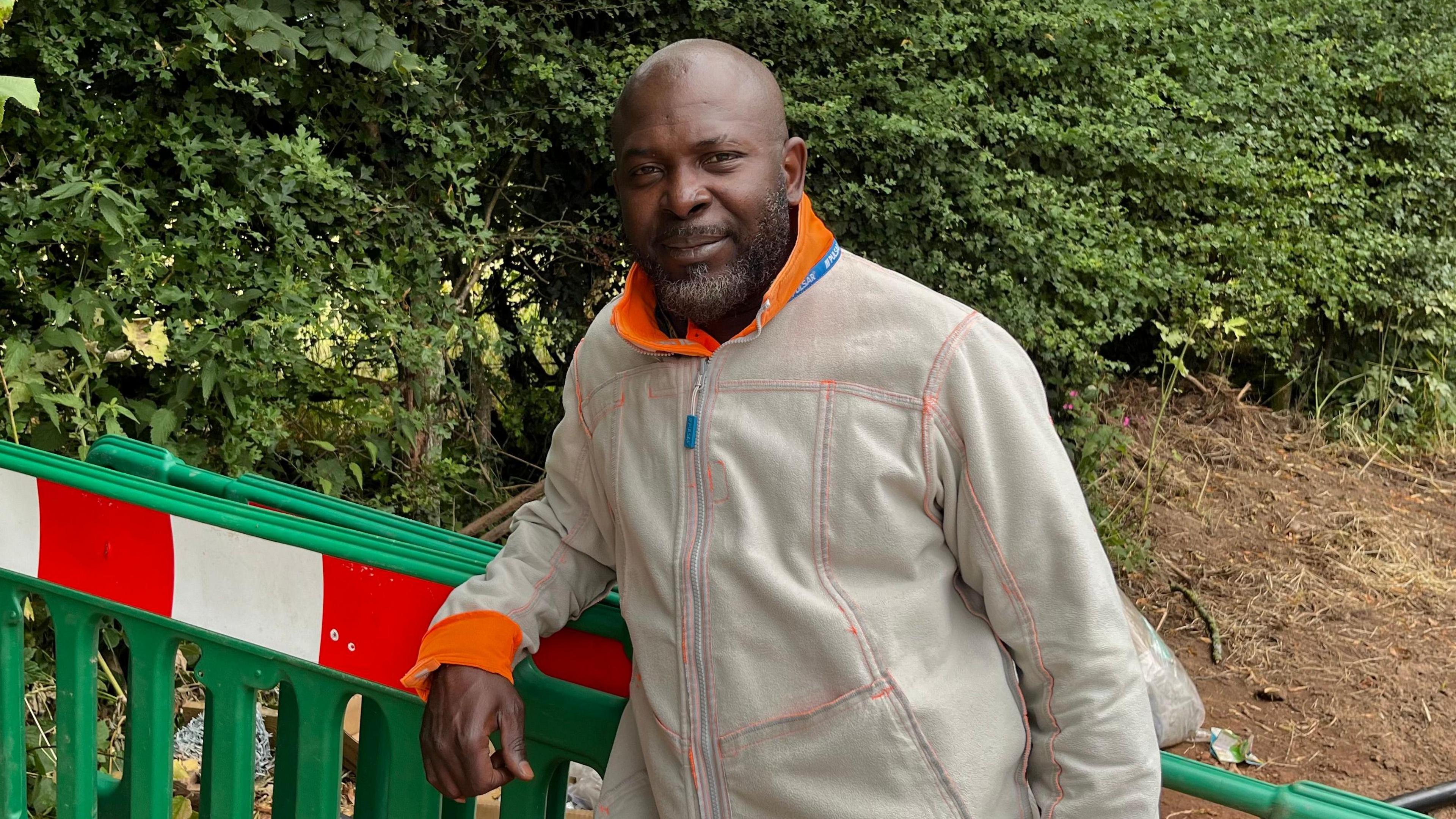'I was wrongly told to pay back £13,000 in benefits'

Kevin Hylton spent two years trying to get answers from the DWP
- Published
Thousands of people are seeking help with debt after the government paid them benefits, only to then be told they were not entitled to the money and must repay it.
Debt counselling service Money Wellness said nearly 10,000 people sought advice last year after the Department for Work and Pensions (DWP) told them it would be clawing money back.
Kevin Hylton, a crane operator from Birmingham, said the DWP had been pursuing him for £13,000, even though he was informed he could claim Universal Credit when he was forced to take time off work due to illness.
"In all honesty they haven't overpaid me," he told the BBC's Money Box programme. "They've just been hounding me for the last two or three years.
After being contacted by Money Box, the DWP said it had cancelled Mr Hylton's "overpayment and apologise for any distressed caused".
It added: “It is important that we continue to explore options to reduce fraud and error in the social security system whilst supporting the most vulnerable in our society.”
But Money Wellness said the entire benefits system "needs simplifying".
Sebrina McCullough, its director of external affairs, said: "The system is too complicated, it is too complex and it needs to be simplified and that in itself would prevent many errors."
Mr Hylton was laid low by a serious bout of depression during the Covid pandemic.
During that time, he applied for and began receiving Universal Credit.
But the DWP later got in contact to say that in fact he was ineligible for the benefit so it had, in effect, been overpaying him and he now owed the state £13,000.
At that point, all his benefit payments stopped too.
As well as missing out on his Universal Credit payments, he also lost help with his rent and council tax meaning he fell into even more debt.
"There was no [electricity] inside the house because I just didn't have any money," said Mr Hylton who added that he was also forced to visit a food bank "just to get food inside the house".
"All because of this one debt that I didn't owe in the first place," he said. "It has been mentally fatiguing, mentally stressful. It has been never-ending."
Despite all this - thanks to getting help dealing with his depression - Mr Hylton has been back at work as a crane supervisor for the last 18 months.
However, it wasn't until Money Box began investigating his case that he learned he had in fact been eligible for the benefit payments in the first place.
"Until I've spoken to Money Box there was no movement from the DWP," he said. "They were adamant this was an overpayment and I was ineligible."
Mr Hylton added: "It shouldn't take a journalist to have to contact the DWP for them to have their house in order. It's really shocking."

Money Wellness's Sebrina McCullough
Ms McCullough said of the people Money Wellness has been supporting with benefit overpayments, "six in 10 of them are using food bank vouchers and seven in 10 are vulnerable in some way".
She said: "The new Labour government has an opportunity now to engage with the debt advice sector to better understand the issues that we're seeing on the front line and make some changes."
The DWP said: “Our staff work hard to support customers struggling with their repayment terms and will always look to negotiate sustainable and affordable repayment plans."
DWP must focus on work not welfare, says minister
- Published23 July 2024
Debt relief orders can write off up to £50,000
- Published27 June 2024
In a National Audit Office report, external, the DWP estimated that it overpaid 6.7% - or £9.5bn - of benefit expenditure in 2023-24. That's up from £8.2bn in the previous year.
It is broken down into three categories:
Fraud accounted for £7.3bn. This is where the DWP considered a claimant should reasonably have been aware they were receiving money that they weren’t entitled to.
Claimant error made up £1.5bn. Claimants made mistakes by providing inaccurate or incomplete information, not fraudulent intent.
Official error resulted in £789m in overpayments. This was where a benefit was paid incorrectly due to action, delay or mistaken assessment by the DWP, a local authority or HM Revenue and Customs.
Get in touch
Have you been affected by the issues raised in this story?